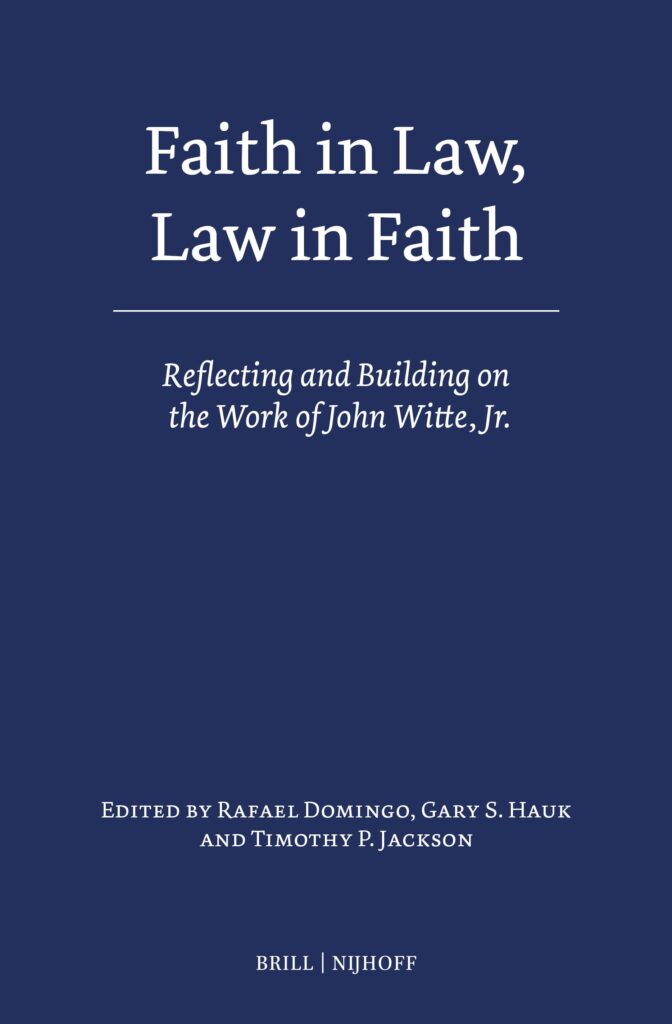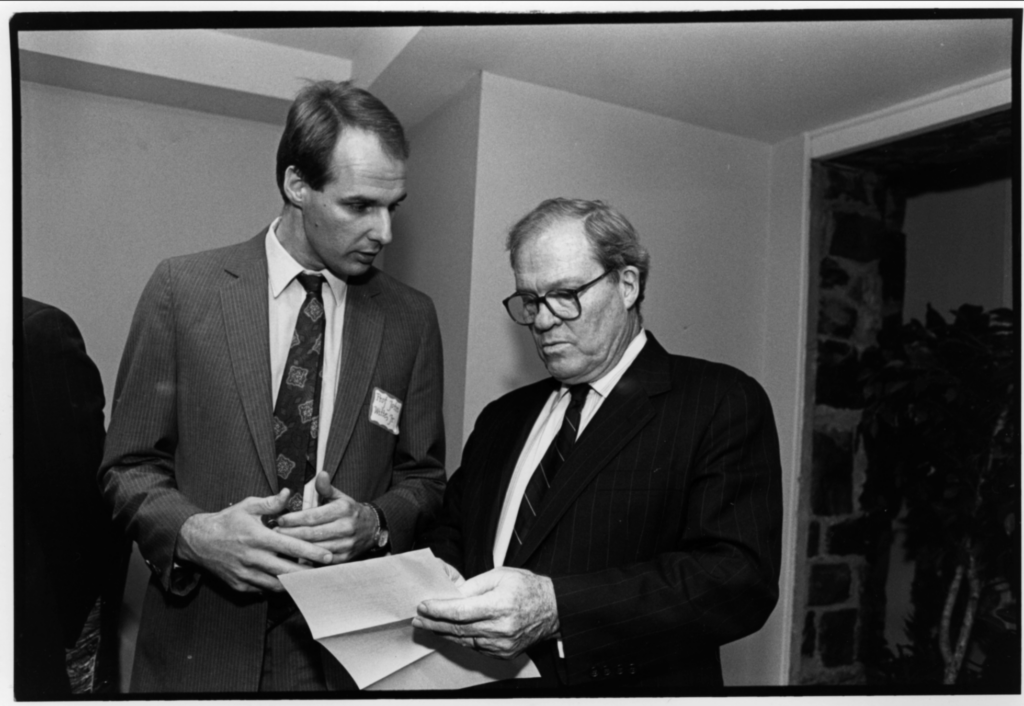
A Foreword to Faith in Law, Law in Faith
James T. Laney
The following is the foreword to the book, Faith in Law, Law in Faith: Reflecting and Building on the Work of John Witte, Jr. (2024). Reprinted under Creative Commons Attribution Non-Commercial License (CC-BY-NC). This is part of a series of Literature Highlights dedicated to celebrating John Witte Jr.’s work. Read more here.
In a sense, this foreword has been in the making for more than half a century. It was 1979 when Emory University, which I was privileged to serve as president, received a munificent benefaction from Robert and George Woodruff, at the time the largest gift ever to an American institution. That endowment enabled us to do some things that no other university was doing at the time.
My deep conviction—in fact, my passion—was that the university should be a scene of fertile intellectual conversation, where different disciplines fortify each other’s imagination and thought. The university also has a moral calling to work toward the larger common good. My role as president was to plant a seed for such work and to provide some resources. One of the innovations I was most interested in was the conversation between law and religion, two disciplines of study that had grown up together in the earliest universities but had become estranged from each other in recent centuries.
In pursuing this idea of bringing law and religion back into a more constructive dialogue, our good fortune lay in recruiting two young Harvard Law graduates and an eminent Harvard Law professor to Atlanta. Frank Alexander, just starting his distinguished teaching career, started the Law and Religion Program at Emory in 1982. The late, great Harold J. Berman, Emory’s first Robert W. Woodruff Professor of Law, brought immediate stature to the enterprise when he joined the faculty in 1985. And a tall, lanky, fresh-faced fellow named John Witte Jr. arrived with Berman as a research assistant. Within two years—his high energy, keen intelligence, and very bright promise already abundantly evident—John had become director of the program, now called the Center for the Study of Law and Religion.

I can say without hesitation that all of us associated with Emory have been simply astonished at what has happened in the intervening decades. The range of the work and influence of the center not only has expanded to reach across Emory University, as we had hoped, but, indeed, has stretched around the world. Home to the Journal of Law and Religion—the flagship journal in the field—the center has guided the publication of more than 350 books, hosted dozens of major conferences, collaborated with leading scholars on six continents, and inspired the founding of similar centers at other universities. Of all the things I am proud of as president emeritus of Emory, none stands higher than the Center for the Study of Law and Religion.
In many respects, all of the center’s achievements reflect the vision and drive of John Witte—not just his executive leadership as director of the center, but his own seminal studies. His laser-like mind, sweeping historical and legal perspective, galvanizing vision, and soaring standards for scholarship, teaching, and collegiality are matched only by his extraordinary appetite for work. He is a prolific writer, from whose keyboard has poured forth a steady torrent of monographs, edited volumes, journal articles, reviews, book chapters, lectures, and op-eds. Not a Johnny one-note, he delves into legal history, constitutional law, historical theology, human rights, marriage, the family, and the shaping of character and moral vision in late modern societies. He has a gift for making all of this deep and broad learning accessible to a wide readership.
This volume appropriately pays tribute to John’s remarkable career. A few years ago, Emory conferred on him the Robert W. Woodruff Professorship of Law—the highest accolade for a faculty member at Emory and the title first held by his mentor, Hal Berman. John now has in every sense succeeded Hal, and I can well imagine how proud he would be, as am I. All of us who care about the overarching purposes of education and the conversation between these two fundamental aspects of human life—law and religion—are in John’s debt. ♦


James T. Laney served as president of Emory University from 1977 until 1993, when he was appointed by U.S. President Bill Clinton to serve as U.S. ambassador to South Korea. A Methodist minister and ethicist, he is the recipient of many honors, including two dozen honorary degrees, the Wilbur L. Cross Medal from Yale (where he earned three degrees), and the World Methodist Peace Award.
Recommended Citation
Laney, James T. “A Foreword to Faith in Law, Law in Faith.” Canopy Forum, August 07, 2024. https://canopyforum.org/2024/08/07/foreword-for-john-witte-jr-festschrift/.
Recent Posts










